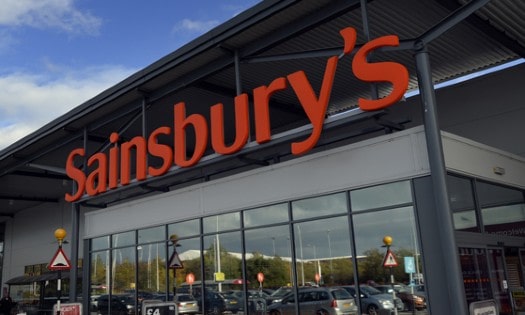Supermarket real estate has proved its worth during times of distress before – most recently during the pandemic – but can it do it again this time around as we enter a potential recession?
Supermarket Income REIT (SUPR), the largest supermarket landlord in the UK, and LXI REIT are both nailing their colours firmly to the mast. This week SUPR announced an upbeat set of results and said that it would continue to grow its portfolio through acquisitions, while LXI exchanged contracts to buy a portfolio of 18 Sainsbury’s stores for £500m.
The deal to buy the portfolio from Sainsbury’s and lease the stores back to them on 15-year inflation linked leases was at a yield of 5.0% and is conditional on LXI raising equity from investors. Investors have been strong supporters of the supermarket sector, with SUPR raising £506.7m in two oversubscribed issues in the past year. It will be interesting to see what support LXI gets from the market.
The recession-beating potential of supermarket assets appear obvious. They are vital infrastructure in a non-discretionary spend sector. You couldn’t wish for a stronger covenant of tenant, which provides resilient income.
The nature of the stores lend themselves to successful omnichannel operations too – where a mix of traditional shopping and online orders can be processed – as has been witnessed in the past few years as online orders have risen 80% on pre-pandemic levels and now make up 11.1% of all grocery spend.
Interest rate rises are impacting all real estate sectors, including supermarkets. The increased cost of borrowing (this week the base rate rose to 2.25% in the UK) will put huge pressure on real estate investment yields.
This is a double-edged sword for SUPR. On the one hand it will present it with several attractive buying opportunities – a point touched on by investment adviser Ben Green in the annual results when he said: “We are optimistic that the current economic uncertainty may unlock some assets that we have coveted for a long time and/or offer the opportunity to acquire assets at attractive yields.”
On the other hand, the cost of its borrowing has increased sharply. Just 60% of the group’s £381m of drawn debt was hedged before June 2022 and it has since taken the decision to hedge the remaining at an upfront cost of £35.3m, giving its debt an effective fixed cost of 2.6%. This has seen 2.8p wiped off the company’s EPRA net tangible assets (NTA), but does protect the erosion of earnings that higher debt costs would have had going forward.
Fortunately, the portfolio’s strong inflation linkage, with 81% of leases index-linked, provides a buffer to rising borrowing costs.
The company has historically increased its dividend in line with annualised rental growth, but due to current market uncertainty, especially around interest rates, it said it was targeting a more conservative increase in the dividend for the next financial year of 1% to 6.0 pence per share.
This would give it an attractive dividend yield of around 5.1%. And given the strength of income and recession-proof nature of the asset class shouldn’t be sniffed at.
